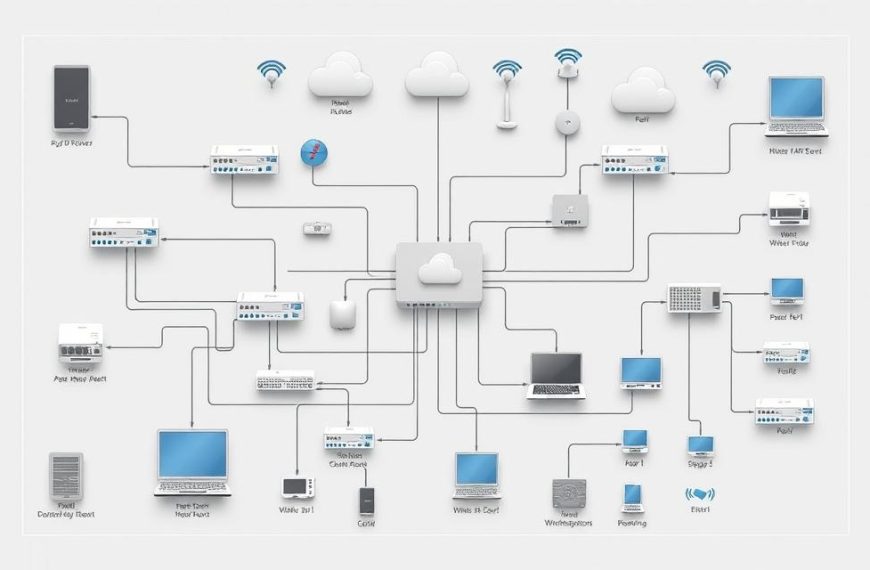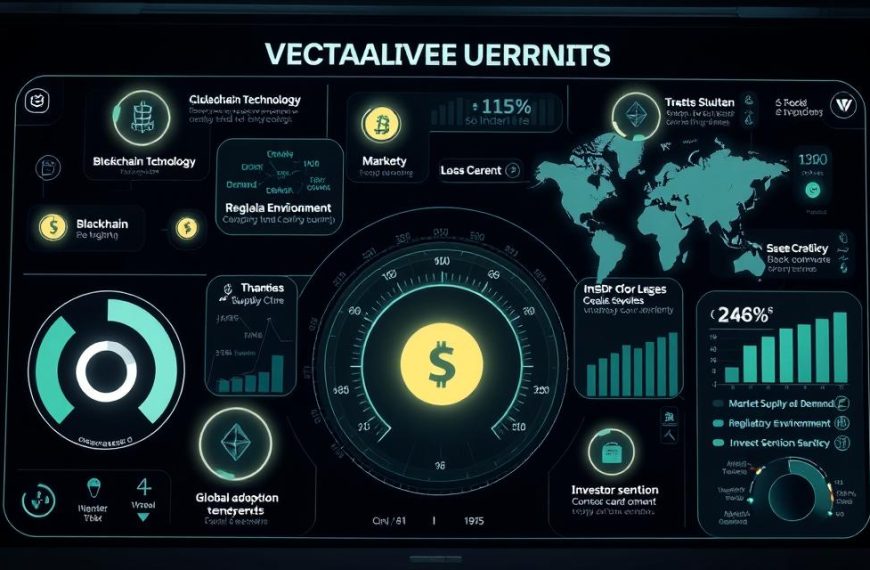In today’s fast-paced world, advanced technologies are reshaping how companies operate. With over 45 billion IoT devices expected to generate 79 zettabytes of information by 2025, the need for efficient decision-making has never been greater.
Machine learning, a subset of artificial intelligence, processes complex datasets 73% faster than traditional methods. This speed enables businesses to uncover insights that drive growth and efficiency. Early adopters have already seen efficiency gains of 35-50% in their operations.
The combination of 5G networks and edge computing further enhances real-time analytics. This synergy allows companies to make informed decisions instantly. As a result, 87% of Fortune 500 companies are now adopting AI-first strategies to stay competitive.
These technologies are not just tools; they are catalysts for innovation. By leveraging big data and AI, businesses can unlock new opportunities and achieve sustainable success.
Introduction to Big Data and AI in Modern Business
Modern enterprises are leveraging cutting-edge tools to stay competitive. The big data analytics market is projected to reach $684 billion by 2030, reflecting its growing importance. This surge is driven by the need for actionable insights that fuel strategic decisions.
Big data is defined by its 5Vs: Volume, Velocity, Variety, Veracity, and Value. These characteristics highlight the complexity and potential of modern data systems. Companies that harness these attributes can unlock transformative opportunities.
Artificial intelligence has evolved significantly over the years. From rule-based systems to deep learning neural networks, AI now offers unparalleled capabilities. This progression enables businesses to process vast amounts of data with precision.
Adoption rates are soaring, with 83% of enterprises prioritizing AI and machine learning investments. Walmart, for instance, uses AI in its supply chain to reduce inventory costs by 15%. Such real-world applications demonstrate the tangible benefits of these technologies.
“The integration of AI and big data is not just a trend; it’s a necessity for modern businesses.”
As these technologies advance, regulatory frameworks are emerging to ensure ethical implementation. Companies must navigate these guidelines while maximizing the value of their data systems. This balance is crucial for sustainable growth.
| Technology | Impact |
|---|---|
| Big Data Analytics | Enables predictive insights and strategic decision-making |
| AI Systems | Improves efficiency and reduces operational costs |
| Ethical AI Frameworks | Ensures responsible and compliant implementation |
In conclusion, the synergy between big data and AI is reshaping the business landscape. By embracing these technologies, companies can drive innovation and achieve long-term success.
The Technological Convergence of Big Data and AI
The fusion of advanced technologies is reshaping industries globally. This convergence is driven by the seamless integration of machine learning and computing systems. Together, they enable businesses to process vast datasets and uncover actionable insights.
Understanding the Synergy Between Big Data and AI
Neural networks, a cornerstone of machine learning, require over 1 million data points for effective training. These systems analyze complex patterns to deliver precise outcomes. For instance, Google’s BERT processes 1 trillion parameters using 1024 TPU chips, showcasing the power of modern algorithms.
Apache Spark is another critical tool, processing 100TB datasets in under 30 minutes. This speed is essential for real-time decision-making. Similarly, TensorFlow supports over 150,000 machine learning models in production, making it a leader in the field.
Key Technologies Driving the Convergence
NVIDIA’s DGX A100 systems deliver 5 petaflops of AI performance, enabling faster processing of large datasets. Quantum annealing applications are also making waves, optimizing logistics routes by 23%. These advancements highlight the transformative potential of computing and machine learning.
| Technology | Impact |
|---|---|
| Neural Networks | Analyze complex patterns for precise outcomes |
| Apache Spark | Processes large datasets in real-time |
| TensorFlow | Supports scalable machine learning models |
| Quantum Annealing | Optimizes logistics and operational efficiency |
In summary, the convergence of these technologies is unlocking new possibilities. By leveraging algorithms and machine learning, businesses can achieve unparalleled efficiency and innovation.
The Evolution of Data Processing in the Age of AI
The way we handle information has transformed dramatically in recent years. Traditional methods of data processing, like SQL databases, are being replaced by advanced systems. This shift is driven by the need to manage increasing volumes data efficiently.
From Traditional Methods to Advanced Analytics
Organizations are moving from SQL to NoSQL databases, with MongoDB adoption rising by 67% year-over-year. This transition supports the demand for scalable and flexible data management solutions. Advanced analytics tools, like Snowflake, handle 2.5 exabytes of daily transactions, enabling faster insights.
Case studies, such as Tesla’s Dojo supercomputer, showcase the power of modern systems. Dojo processes 1.5 million video clips daily, enhancing autonomous driving capabilities. These advancements highlight the importance of robust models in handling complex datasets.
The Role of Cloud and Edge Computing
Cloud platforms like AWS Lambda process 10 trillion events monthly, demonstrating their scalability. Edge computing complements this by reducing latency, with the edge AI chipsets market growing at a 20.8% CAGR through 2028. This synergy ensures real-time analytics and efficient data management.
GDPR-compliant anonymization techniques are also gaining traction, preserving 98% of data utility while ensuring privacy. These innovations underscore the evolution of models and systems in the age of AI.
How Big Data and AI Are Driving Business Innovation
Across sectors, advanced systems are transforming operations and unlocking new potentials. These applications are not just enhancing efficiency but also reshaping how businesses interact with their customers.
Applications in Healthcare and Finance
In healthcare, AI-powered diagnostics are reducing misdiagnosis rates by 45%. For example, Mayo Clinic uses these systems to improve patient outcomes. Similarly, the development of COVID vaccines was accelerated from 10 years to just 11 months, showcasing the power of these tools.
In finance, JP Morgan’s COIN platform saves 360,000 lawyer-hours annually. BlackRock’s Aladdin manages $21.6 trillion in assets using predictive models. These applications highlight the transformative impact of technology in high-stakes industries.
Predictive Analytics and Decision-Making
Predictive analytics is driving smarter decisions across the board. Salesforce Einstein, for instance, achieves 35% higher lead conversion rates by analyzing customer behavior. Fraud detection systems are also preventing $20 billion in annual losses, ensuring secure transactions.
These trends underscore the growing reliance on data-driven insights. By leveraging predictive models, businesses can anticipate market shifts and make informed decisions.
In conclusion, the power of advanced technologies is reshaping industries. From healthcare to finance, these tools are driving innovation and setting new trends for the future.
Real-World Examples of Big Data and AI in Action
From healthcare to logistics, advanced systems are making a tangible impact across industries. These examples highlight how learning algorithms and predictive models are transforming everyday operations.
Personalized Medicine in Healthcare
In healthcare, models like DeepMind’s AlphaFold have predicted 200 million protein structures, accelerating drug discovery. Tempus Labs uses genomic analysis to match cancer therapies with 92% accuracy, improving patient outcomes.
These advancements showcase the power of learning systems in understanding complex behavior patterns. By leveraging these tools, doctors can deliver more precise treatments tailored to individual needs.
Algorithmic Trading in Finance
In finance, Renaissance Technologies’ Medallion Fund achieves 66% annual returns using advanced models. These systems analyze market behavior to make split-second decisions, maximizing profitability.
Such examples demonstrate how algorithmic trading is reshaping the financial world. By automating processes, firms can reduce risks and enhance efficiency.
From Netflix’s recommendation engine saving $1 billion annually to John Deere’s autonomous tractors boosting crop yields by 15%, these innovations are redefining industries. The integration of learning systems and predictive models is driving unprecedented progress.
The Benefits of Integrating Big Data and AI in Business
The integration of advanced systems is delivering transformative benefits across industries. From streamlining operations to enhancing customer interactions, these capabilities are reshaping how companies operate. By leveraging these tools, businesses can unlock significant value and stay ahead in competitive markets.
Enhanced Efficiency and Productivity
Advanced systems are revolutionizing operational efficiency. Amazon’s anticipatory shipping patents, for instance, have reduced delivery times by 35%. This innovation ensures faster service for users while optimizing logistics. Similarly, DHL’s smart warehouses achieve 99.9% inventory accuracy, minimizing errors and maximizing productivity.
BMW’s predictive maintenance systems have cut production downtime by 25%, showcasing the value of proactive solutions. These examples highlight how businesses can achieve higher efficiency by adopting advanced platforms.
Improved Customer Experiences
Customer interactions are also being transformed. Starbucks’ Deep Brew system has increased same-store sales by 17% through personalized recommendations. This approach enhances the experience for users by tailoring offerings to their preferences.
Hilton’s Connie AI concierge has boosted guest satisfaction scores by 28%, demonstrating the capabilities of AI in hospitality. These innovations ensure that businesses can deliver exceptional service while building lasting relationships with their customers.
| Company | Benefit |
|---|---|
| Amazon | 35% faster delivery times |
| DHL | 99.9% inventory accuracy |
| Starbucks | 17% increase in same-store sales |
| Hilton | 28% higher guest satisfaction |
| BMW | 25% reduction in production downtime |
In conclusion, the integration of advanced systems offers unparalleled benefits for businesses. From boosting efficiency to enhancing customer experiences, these tools are essential for achieving long-term success in today’s dynamic market.
Challenges in Adopting Big Data and AI Technologies
Adopting advanced technologies comes with its own set of hurdles. While these systems offer immense potential, organizations often face significant barriers during implementation. From data privacy concerns to workforce skill gaps, addressing these issues is critical for successful integration.
Data Privacy and Security Concerns
One of the most pressing challenges is ensuring data privacy and security. In 2022, GDPR fines totaled €2.92 billion across EU companies, highlighting the importance of compliance. Poor data quality also remains a major issue, with 43% of AI projects failing due to inadequate information.
MIT research revealed that 85% of facial recognition systems exhibit bias, raising ethical concerns. To combat these risks, solutions like Darktrace’s Enterprise Immune System have prevented over 150,000 ransomware attacks. Effective management of these processes is essential to mitigate vulnerabilities.
Overcoming Skill Gaps in the Workforce
Another critical challenge is the shortage of skilled professionals. By 2025, the U.S. will face a deficit of 1.2 million AI specialists, according to Burning Glass. This gap hinders the ability of organizations to implement and maintain advanced systems effectively.
To address this, initiatives like IBM’s $250 million New Collar program are training 30,000 professionals in cutting-edge skills. Investing in workforce development ensures that companies can optimize their processes and achieve long-term success.
In summary, while the adoption of advanced technologies presents challenges, addressing data privacy, security, and workforce skills can pave the way for smoother implementation and sustainable growth.
Future Trends in Big Data and AI
The landscape of technology is evolving at an unprecedented pace. Emerging advancements are setting the stage for transformative changes across industries. From quantum computing to the integration of AI and IoT, these trends are reshaping how we process and utilize information.
The Rise of Quantum Computing
Quantum computing is revolutionizing the way we handle complex problems. Google’s Sycamore processor achieved quantum supremacy in just 200 seconds, solving tasks that would take traditional systems thousands of years. This breakthrough highlights the immense potential of quantum systems.
IBM’s 433-qubit Osprey processor, set for release in 2023, promises even greater capabilities. These advancements will enable businesses to process vast amounts of data with unprecedented speed and accuracy. Quantum computing is poised to transform industries from logistics to drug discovery.
AI and IoT: The Next Frontier
The integration of AI and IoT is unlocking new possibilities. Smart city deployments are expected to generate 180 zettabytes of data by 2025. These devices are transforming urban infrastructure, enhancing efficiency, and improving quality of life.
Neuromorphic chips, which mimic the human brain’s efficiency, are also gaining traction. These chips enable faster processing of IoT-generated data, paving the way for smarter devices. Additionally, 6G networks, capable of 1Tbps data transmission speeds, will further enhance connectivity and real-time analytics.
The digital twin market, projected to reach $73 billion by 2027, exemplifies the growing reliance on these technologies. By creating virtual replicas of physical systems, businesses can optimize operations and predict outcomes with greater accuracy.
In summary, the future of technology lies in the convergence of quantum computing, AI, and IoT. These advancements will drive innovation, enabling businesses to process vast amounts of data and unlock new opportunities.
Embracing Digital Transformation with Big Data and AI
Digital transformation is no longer optional but a necessity for modern enterprises. Companies are leveraging advanced systems to enhance efficiency, scalability, and competitiveness. With 73% of CIOs reporting a 3:1 ROI on AI infrastructure spending, the value of these technologies is undeniable.
Developing a Robust Data Strategy
A strong strategy is the foundation of successful digital transformation. Data mesh architecture, growing at a 58% CAGR, is enabling organizations to decentralize data ownership. This approach ensures scalability and agility in handling complex datasets.
Snowflake’s Financial Services Data Cloud, handling $1.2 quadrillion in assets, exemplifies the power of modern data systems. By adopting such platforms, businesses can unlock actionable insights and drive informed decision-making.
Investing in AI Implementation
Effective implementation of AI requires significant investment. Microsoft’s $10 billion OpenAI partnership is creating Azure AI supercomputers, setting new benchmarks in the market. These systems support 25+ production-ready algorithms, enabling businesses to scale AI applications seamlessly.
Accenture’s Responsible AI Framework is another critical development, reducing compliance costs by 40%. This ensures ethical and sustainable AI adoption, aligning with regulatory standards.
| Initiative | Impact |
|---|---|
| Data Mesh Architecture | Enables scalable and decentralized data ownership |
| Snowflake Financial Services Data Cloud | Handles $1.2 quadrillion in assets |
| Microsoft OpenAI Partnership | Creates Azure AI supercomputers |
| Accenture Responsible AI Framework | Reduces compliance costs by 40% |
| AWS Machine Learning Services | Supports 25+ production-ready algorithms |
In conclusion, embracing digital transformation with a robust strategy and strategic investment in AI is essential for staying competitive. These technologies are reshaping the market, offering unparalleled opportunities for growth and innovation.
Conclusion: The Future of Business Innovation with Big Data and AI
The next decade will redefine how enterprises operate, with cutting-edge technologies leading the charge. By 2025, 90% of enterprise applications are projected to incorporate AI elements, signaling a seismic shift in operational frameworks. Emerging ethical AI certification standards, such as the IEEE 7000 series, are setting benchmarks for responsible implementation.
Cross-industry partnerships are accelerating innovation cycles by 150%, fostering collaboration that drives progress. Global investments in national AI strategies are surpassing $300 billion, underscoring the importance of these technologies in shaping the future of industries.
For C-suite leaders, adopting AI maturity frameworks is no longer optional but essential. These frameworks ensure organizations stay ahead of trends and maximize the potential of advanced systems. The integration of AI and big data is not just a business strategy; it’s a pathway to sustained growth and competitiveness.















